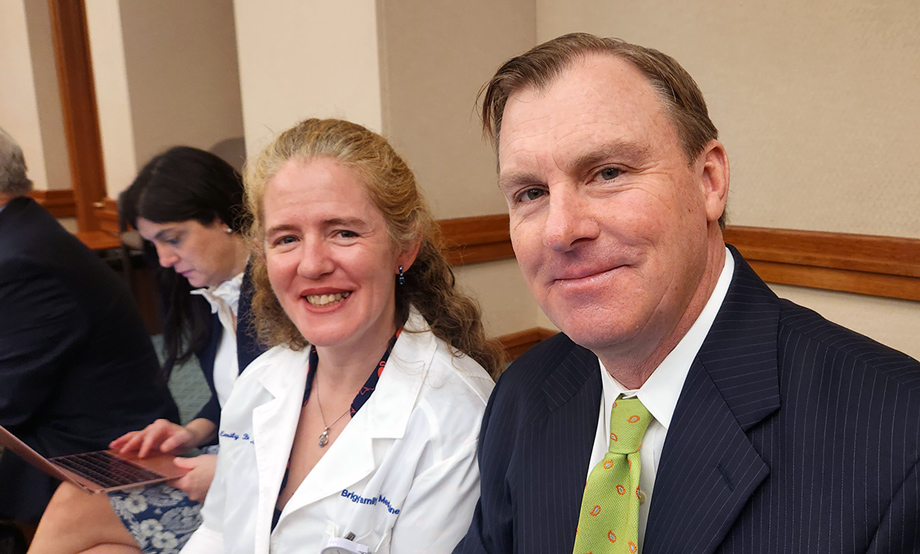TAFP members tell Senate Finance Committee to restore funding for family medicine residencies
By Jonathan Nelson
The Senate Finance Committee met Tuesday, February 7, to hear testimony on Article III of the state budget, which contains all funding for graduate medical education. Two TAFP members traveled to Austin to provide testimony on what happened to be the Texas Medical Association’s primary-care-focused First Tuesday, when physicians from across the state wear their white coats to advocate for health care policy at the Capitol.
TAFP President Emily Briggs, MD, MPH, of New Braunfels called on the Legislature to restore funding to the Family Practice Residency Program, a budget strategy administered by the Texas Higher Education Coordinating Board that funds family medicine residencies. Although the number of family medicine residents continues to increase year over year, the amount of THECB funding for those residents has withered, dropping from $14,300 per resident in 2011 to less than $4,800 in 2022. Restoring that funding is one of TAFP’s top priorities in the 88th Texas Legislature. (Read TAFP’s issue brief on family medicine residency funding.)
Briggs told the committee that the state must invest in expanding its primary care workforce and that doing so “will pay dividends for our patients now and in the future.”
“Family physicians are the ones going out into the rural areas that are otherwise underserved, taking on all of those patients,” Briggs said. “For many years, for instance, only family docs provided the obstetric care in New Braunfels. Even though we had some OBs, we were the only ones providing obstetric care to our Medicaid patients. Our small towns and rural communities deserve this excellent care, so we need improved residency training funding.” (Watch Dr. Briggs' testimony.)

Rodney Young, MD, of Amarillo, testified in support of increased investment in graduate medical education and other programs designed to strengthen the state’s physician workforce. He is a professor and the regional chair of the Department of Family and Community Medicine, Amarillo at Texas Tech University Health Sciences Center.
He thanked the Legislature for creating the Graduate Medical Education Expansion Grant Program, pointing out that as Texas continues to grow, more support for residency training is needed. When the expansion grant program was enacted, the Legislature set a goal of increasing the number of available training slots such that for every graduating medical student in the state, Texas would have 1.1 residency positions.
“We’ve added seven new medical schools in the past seven years and it will take an additional approximately 300 positions to be able to maintain that 1.1 to 1 for graduate medical education,” Young said. “And it’s so critical because we know if we educate them and train them in Texas, they are much more likely to remain in Texas to practice, so the return on investment really comes through.”
Young also called on the committee to include funding in the budget for the Rural Resident Physician Grant Program, which was enacted in 2019 but has never been funded. “That program helps rural programs identify ways to develop graduate medical education sites there that, if we can get them up and started, are eligible to apply for sustainable federal funding to help them continue and help them address the workforce shortage in rural areas.”
Senate Finance Vice Chair Juan “Chuy” Hinojosa, (D-McAllen), responded to Young’s testimony, pointing out the need for increasing the number of family physicians in Texas. “I think quite frankly the family physicians are very much key frontline medical doctors … but we have a shortage of family physicians throughout the state,” he said.
“On behalf of the [state’s] family medicine residency programs that are struggling because of limitations in the family medicine residency program funding that’s dropped by about three-fourths from its peak, we seek your help in continuing to be there to train family physicians for Texas,” Young replied. (Watch Dr. Young’s testimony.)
